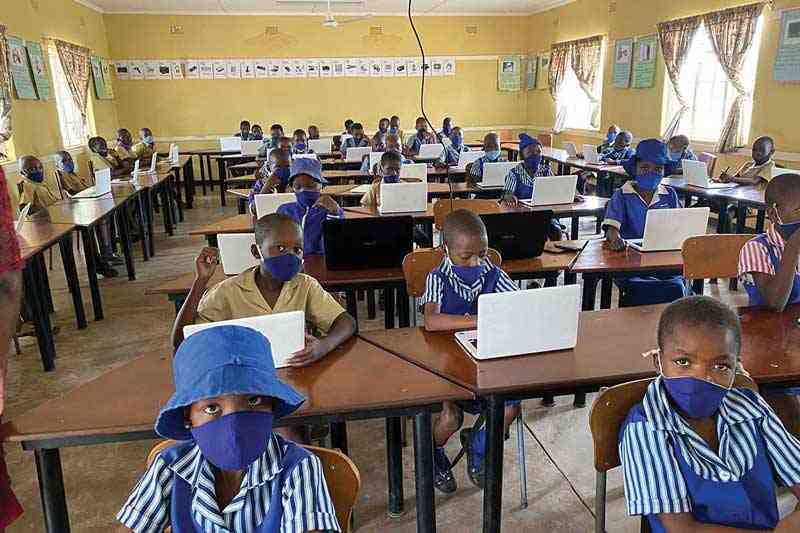
That the global geo-political economy is shifting towards digital and surviving in the information age calls for innovative ways and minds.
Some organisations came and went due to failure to adapt to the new world where digital Darwinism thrives.
Thanks to technology, we can now travel overseas virtually.
Taking a closer look at Zimbabwe, it is evident that we are still far from digital transformation.
In this day and age, we still struggle to process applications virtually.
We constantly get error messages from our banks.
Our mobile networks are not reliable whereas network connection is a basic requirement for internet connection.
We are still queuing in banks to do simple transactions.
- Social media platforms should act on hate speech
- Sunday word: Battle of Biblical 'Armageddon'
- Instagram fined 405m over children's data privacy
- Business opinion: Social media branding for tourism
Keep Reading
Long queues at the registrar general’s office are indicative of the fact that we have not moved much in terms of technological development.
Generally, technology is believed to be an expensive type of development that has seen some African countries, particularly Zimbabwe lag behind due to lack of adequate resources and probably the type of technology that is difficult to adapt.
Appropriate technology should be recommended in countries, which have the majority of their populations living below the poverty datum line.
With the onset of Covid-19, social media has rapidly become a crucial communication tool for education and development.
Despite the Covid-19 restrictions, the world needed to progress in all spheres of the economy.
The Covid-19 pandemic affected the education sector, especially in developing countries.
Vulnerable groups like the poor were the most affected in the digital era.
Different digital platforms are now being used as a means of communication between students and teachers.
Many students use the WhatsApp social network to communicate with their teachers.
The Facebook-owned platform is said to be the most popular and affordable messaging app in Zimbabwe, with an estimated 5.2 million users.
Zimbabwean teachers spent the greater part of the Covid-19 era conducting WhatsApp tutorials since schools were closed due to the pandemic.
This development affected the learning of millions of pupils since some could not afford buying even weekly WhatsApp bundles.
The majority of teachers are incapacitated due to financial challenges and buying data bundles from their pockets is a difficult proposition.
Thinking of some children in remote areas, e-learning might take years to be implemented.
With the cost of smartphones, getting one can be difficult for parents and guardians in the rural areas.
Therefore, it is unfair to expect O’Level students in remote areas to produce the same results as those in urban areas where one can get free ZOL Wi-Fi hotspots sometimes.
Of course, e-learning is not new for some people, but it became the only option during the period of Covid-19.
The government must have a plan to ensure that there is equitable distribution of resources to promote e-learning in all educational sectors in Zimbabwe.
It is the government’s responsibility to ensure that there is quality education.
Access to information is a human right.
It seems Covid-19 pushed innovation through technology.
Quite a number of small and medium enterprises (SMEs) in Harare resorted to the use of WhatsApp for marketing their wares in the midst of the Covid-19 pandemic.
President Emmerson Mnangagwa imposed a national lockdown in March 2020.
Non-essential service providers were encouraged to work from home.
Working from home demands some technicalities, which are still difficult for some to adapt to.
The use of the Zoom application was new to some people.
Zoom Cloud Meetings is a proprietary video teleconferencing software programme developed by Zoom Video Communications.
The free plan allows up to 100 concurrent participants.
Moving from the boardroom to Zoom meetings seems to be a challenge as some people still struggle to connect into Zoom platforms.
Thanks to X (formerly Twitter) for developing spaces that allow thousands of people to conduct meetings in the comfort of their homes.
Such development might have been implemented to promote social distancing.
According to the microblogging site, X Spaces were invented to allow conversations about users and their content to be at its best on X.
Now that users can X and talk, people can freely discuss and debate issues without having to meet physically.
Spaces unlock conversations on X with the depth and power only the human voice can bring.
These ephemeral, live audio conversations allow for open, authentic, and unfiltered discussions.
It is even more interesting since there is a space for any and every topic and conversation, from small and intimate to millions of listeners who can follow the discussions in the comfort of their homes.
Technology is usually introduced in stages especially after identifying a need or a gap that can be bridged through technology and development.
Research and development can help in developing new technology systems for Zimbabwe.
Evans Mathanda is a journalist and development practitioner who writes in his capacity. For feedback email: evanngoe@gmail.com or call 0719770038 and X @EvansMathanda19









